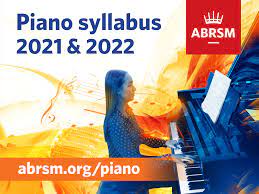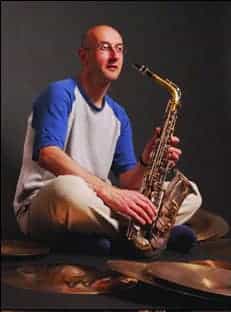Examiners declare no-confidence in ABRSM systems
NewsThe international music examining board is under fire from its users. See below.
Letter of no confidence in ABRSM’s IT infrastructure
Dear Chris,
Since ABRSM’s decision to improve its IT system through an overhaul of the booking system and the creation of Marcato software, colleagues have patiently worked through and accommodated the many bugs that have continued to be present in this software and infrastructure.
Management has consistently failed to respond effectively to the root causes of this situation, preferring instead to suggest that the welter of deeply critical comment on social media platforms and from other sources is insignificant, with major issues still being inadequately rationalised and normalised as mere ‘glitches’. At a time when ABRSM’s image and reputation has suffered, and its financial situation has been so challenged, we are at a loss to understand why the crisis of public confidence is being allowed to continue unresolved, with insufficient regard for the amount of collective frustration, wasted time, and loss of trust in ABRSM’s operations and standards.
There are still numerous instances of local system crashes and ongoing malfunctioning. Many examiners literally dread the possibility of software and hardware failures when out on the road in live face-to-face examining situations. All this impacts on the candidate experience and is a source of deep embarrassment to examiners. The more recent systems failure to deliver the final edited version of mark forms to candidates, whilst in some instances laying the blame for sub standard syntax, grammar, and incorrect figures at the door of individual examiners is simply unacceptable. Not only does this undermine the professional integrity of the examiner panel, whose reputation within the music industry risks being adversely affected by ABRSM system failures, but we are being called upon, as ambassadors for ABRSM, to defend the indefensible.
We do not accept the reasons we have been given for Marcato failures as ‘the inability to test at scale’. After over two years of patiently endeavouring with this volatile technology, we are deeply concerned at the apparent failure of software developers to provide the necessary basic level of industry standard reliability and support, and the apparent inability to ensure a stable platform. Many colleagues now feel that their only option is to soldier on with a tool which has proven itself unfit for purpose, with no assurance of an end in sight or a date by which it will reach an acceptable standard of reliability. We feel this state of affairs is unfeasible, unreasonable, and unsustainable.
We are calling on ABRSM to undertake a full audit of the current situation and to provide us with long- and short-term strategies to ensure reliable solutions, so that customer confidence is restored, and we can undertake work for ABRSM in a manner which befits our professional expectations as examiners, and the expectations of the customers we serve.
We do not currently have confidence in ABRSM’s IT infrastructure and software. May 2022
Emily Ashton Claire Hobbs
Karen Anderson Andy Hodge
Marcus Andrews Eleanor Hodgkinson
Paul Arnell Sandy Holland
Bernard Barker Errol Hui
Alice Beckwith Rachel Jeffers
Sally Bell Adrian Lucas
Sue Bint Richard Markham
Gill Blythman Anne Marshall
Chris Brannick Alison Moncrieff-Kelly
Robert Bridge Jane Money
Peter Broadbent Kathryn Mosley
Rosemary Broadbent David Nettle
Christopher Brown Peter Noke
William Bruce Anthony Ovenell
Alan Bullard Llinos Owen
Russell Burton Stephen Pinnock
Seán Carolan Martin Richards
Stephen Carleston Michael Ridley
Nicholas Carter Tim Ridley
Helen Cawthorne Victoria Rowley
Susan Clark Martin Sanders-Hewett
Marissa Cornford Peter Selwyn
Gillian Cummins Iain Sloan
Caroline Diffley Michael Smedley
Kevin Duggan Eleanor Smith
Andrew Dunlop Peter Stearn
Brenda Dykes Helen Styles
Val Dyson Meurig Thomas
Margaret Ede John Treherne MBE
Howard Evans Helen Tseu
Robert Evans Steven Wilkie
Gill Ford
Anthony Froggatt
Lauren Golthorpe
Moira Hayward
There are 153 other colleagues who also support this letter of no confidence and have expressed their wish to remain anonymous.






This is, in its way, horribly reminiscent of the failures of the Post office Fujitsu system which led to very many sub-postmasters being accused of , convicted and sent to prison for fraud. The Post Office dishonestly insisted throughout that there was nothing wrong with the system . These systems are such that if they are not right at the start, the chances of bodge after bodge after bodge rectifying them is minimal
The solution is very simple — return to the handwritten comments forms that were used until the end of 2019. This would have the added benefit of allowing examiners to write musical notes/rhythms in the comments once again. I imagine that most examination venues would have a scanner or, failing that, a camera somewhere on the premises, so forms could always be scanned and uploaded to a computer system at the end of the examining day, if the ABRSM are truly so concerned about paperwork getting lost in transit without backups. It is utter madness to make the progress of the examination itself dependent on the foibles of software, internet connections, and tablet battery life.
What about the boneheadedly ugly pieces in its exam curricula chosen solely on pedagogical not any artistic or aesthetic merit, thereby to best put students off any normative enthusiasm for their instrument
I have felt it’s all been wrong for years after I attempted to become an examiner some years ago. In the training, and I have perfect pitch, the main examiner didn’t notice kids transposing ‘difficult’ scales on the piano, so churned out C major instead of Db major! I never would have had the nerve to try! No idea what happened or they got up to with the transposing instruments like clarinets The syllabus for singing exams are dreadful and examined on a much lower level. Grade 8 in no time, can only sing exam songs, after taking grade after grade after grade after taking a multiple choice box ticking exam for theory. Then the parents… and thd expense of it all.
Sorry to say, but your rather poor command of English grammar may have contributed to you being rejected as an examiner.
I wasn’t rejected! I resigned as a music examiner and not as an English examiner. I may well have been rejected for that coming from a very poor part of London where English is still not the dominant language, and not middle class or Oxbridge educated! There is room for everyone.
Sarah, did you mean “… your being rejected”. I think that “being” is a gerund here, so “you” takes the possessive; ie “your being”.
As a teacher entering candidates for examination, the experience of using the software is clunky, time-consuming and irritating.
And utterly muddling to some of the less technologically inclined.
I did a music theory exam online and setting it all up was by far the most stressful aspect of it.
How about having confidence in their curriculum? I’ve never had any.
Dislike the new multiple choice version of theory Grades 1 to 5. Some of the questions are geared more towards a puzzle solving mentality than relevant musical awareness.
The rot started in 2018, when they removed the creative element of writing a melody or rhythm from grades 1-5 theory.
But it was the wholesale switch at grades 1-5 theory to multiple-choice questions, in 2020, that has turned these particular examinations into worthless qualifications, in my view. It is almost as though the ABRSM want to remove the prerequisite for doing grades 6-8 practical examinations, but dare not do it openly (because having the prerequisite gives the brand a fig-leaf of “rigour”, an important selling-point for many of its most loyal music teachers and pupils), so they settle for turning the most widely used prerequisite option (grade 5 theory) into little more than a box-ticking exercise. I am horrified that one of our most eminent examination boards fails (or gives the impression of failing) to see the serious problems with removing the focus on copying and writing-out music notation. Copying and writing-out are a vital skills in that they engrain musical knowledge and competence, helping learners obtain experience in engaging with music notation as an active participant, rather than as a passive spectator. We speak of literacy as entailing the ability to both read *and* write, yet the ABRSM is behaving as though the latter facet were dispensable at grades 1-5.
To justify the myopic reduction of music theory to multiple-choice questions in the name of “objectivity” and “reliability” (which was the ABRSM’s stated rationale in 2020) betrays an exceedingly blinkered and unreliable understanding of what music theory is — whilst it often involves a very precise and specific mapping of musical phenomena to one or more analytical vocabularies, to rely primarily or exclusively on multiple-choice questions is to engender “cramming” rather than a serious engagement with the subtlety and sophistication underpinning the development and application of these vocabularies.
Since 2020, I have been encouraging my pupils to pursue the ABRSM’s Practical Musicianship examinations instead (grade 5 or above in Practical Musicianship meets the prerequisite for entering grades 6-8), since they now offer a far better means of cultivating the synthesis of rigour and creativity demanded by the art and science of music. I would urge other music teachers to do likewise.
A bureaucracy’s first action and overriding purpose is always to maintain its own existence.
If necessary it will, like Dr. Who, re-incarnate but remain the the same entity underneath.
Since the failures of the booking system in August 2021, I’ve switched all 70 of my weekly pupils to MTB Exams, who are inspiringly modern in their approach to syllabuses. I’ve been watching ABRSM implode from a distance, and am very glad I left the bandwagon when I did.
It is never a good way to teach, forcing pupils to adapt their learning to a strictly limited, stuffy, out of touch curriculum. 95% of my students don’t suit ABRSM’s exams, and never have. I’m delighted to be offering fresher, more vibrant lessons nowadays free from the constraints of three exam bookings a year!
What a tale of woe! I sympathise with the examiners. My own frustrating experiences with the ABRSM have been as an exam applicant for my pupils. Each time I’ve gone online to do this, the system has found a way to put me into a real frazzle, and has wasted me a lot of time. Admittedly, I am not a young computer whizkid, but I am reasonably fluent. I don’t think an organisation should put its agents, in this case teachers, into this position. Music is coming last.
The email from them in 2020 about on-line theory was a red flag. I stared at that email in horror and then replied “You should be ashamed of yourselves”
I them re-wrote my theory worksheets to take pupils to G5 with Trinity. What a breath of fresh air!
I use LCME and MTB now and I would say my pupils and I are far happier.
I used to be an ABRSM fan but not any more